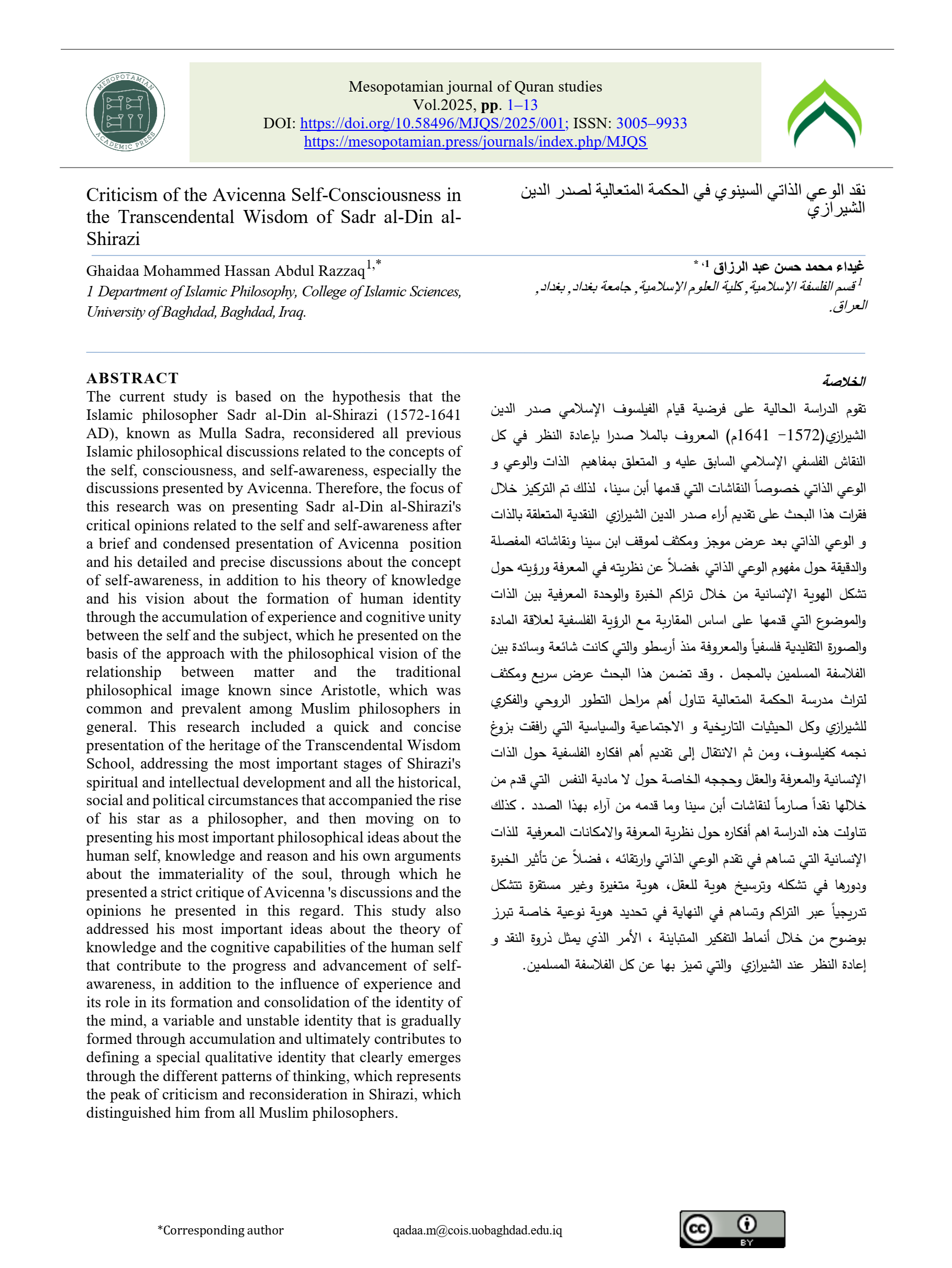Criticism of the Avicenna Self-Consciousness in the Transcendental Wisdom of Sadr al-Din al-Shirazi
Main Article Content
Abstract
The current study is based on the hypothesis that the Islamic philosopher Sadr al-Din al-Shirazi (1572-1641 AD), known as Mulla Sadra, reconsidered all previous Islamic philosophical discussions related to the concepts of the self, consciousness, and self-awareness, especially the discussions presented by Avicenna. Therefore, the focus of this research was on presenting Sadr al-Din al-Shirazi's critical opinions related to the self and self-awareness after a brief and condensed presentation of Avicenna position and his detailed and precise discussions about the concept of self-awareness, in addition to his theory of knowledge and his vision about the formation of human identity through the accumulation of experience and cognitive unity between the self and the subject, which he presented on the basis of the approach with the philosophical vision of the relationship between matter and the traditional philosophical image known since Aristotle, which was common and prevalent among Muslim philosophers in general. This research included a quick and concise presentation of the heritage of the Transcendental Wisdom School, addressing the most important stages of Shirazi's spiritual and intellectual development and all the historical, social and political circumstances that accompanied the rise of his star as a philosopher, and then moving on to presenting his most important philosophical ideas about the human self, knowledge and reason and his own arguments about the immateriality of the soul, through which he presented a strict critique of Avicenna 's discussions and the opinions he presented in this regard. This study also addressed his most important ideas about the theory of knowledge and the cognitive capabilities of the human self that contribute to the progress and advancement of self-awareness, in addition to the influence of experience and its role in its formation and consolidation of the identity of the mind, a variable and unstable identity that is gradually formed through accumulation and ultimately contributes to defining a special qualitative identity that clearly emerges through the different patterns of thinking, which represents the peak of criticism and reconsideration in Shirazi, which distinguished him from all Muslim philosophers
Article Details
Issue
Section

This work is licensed under a Creative Commons Attribution-ShareAlike 4.0 International License.
Deprecated: json_decode(): Passing null to parameter #1 ($json) of type string is deprecated in /home/u273879158/domains/mesopotamian.press/public_html/journals/plugins/generic/citations/CitationsPlugin.php on line 68
